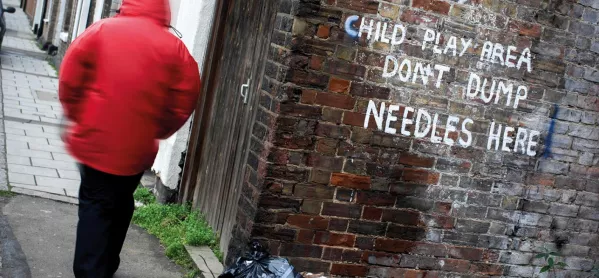Domestic abuse is the most common reason for pupils needing help and protection from social services, according to research.
An estimated 160,000 children in England are currently living in households where abuse is taking place - and research shows it can have an impact on their educational outcomes.
Today education secretary Damian Hinds has vowed to help raise the achievement levels of vulnerable children by providing advice to teachers and social workers on how to improve their wellbeing, behaviour and school attendance.
He said: “Whether it’s making sure a child has a consistent and trusted member of staff or taking the time to speak to a child the morning after they have witnessed domestic abuse, I hope this practical advice can help those leaders in schools and social care, alongside our hardworking teachers and social workers, understand how we can collectively do to more to support these children. Together, we can help them have greater opportunities to fulfil their potential.”
Figures show that in 2016-17, one in 10 state school pupils had a social worker within the previous six years of their life, and that the average GCSE attainment for vulnerable children is nearly half that of other pupils.
The advice will be set out in a report published today called the Children in Need of Help and Protection review.
It is based on research involving more than 600 school and social care professionals who have shared their good practice on how to support vulnerable schoolchildren.
The report highlights Operation Encompass, an initiative in which police alert a school safeguarding lead as quickly as the next morning after a child has witnessed domestic abuse. As a result, school staff can decide how to best support the child that day, for example by giving them time to calm down or not reprimanding them for being late or missing homework.
The initiative is the brainchild of headteacher Elisabeth Carney-Haworth, who Tes featured in a profile last month, and is now being used by 33 police forces around the country and has spawned offshoots as far afield as the Netherlands and Australia.
“We’ve actually reinstated a relationship between a school and a police force,” said Carney-Haworth.
“It’s a relationship that used to exist when I first was in education and then which over the years has gradually dwindled and died... because of [police and school budget] cuts mainly.”
Meanwhile, advice in the report also includes how to better identify vulnerable children and understand the impact of their traumatic experiences as well as on finding effective ways to achieve better information sharing and multi-agency working between schools and other local agencies.
There is also advice on “making proportionate adjustments to promote better outcomes,” such as teachers adapting how they communicate with vulnerable children and how they manage their behaviour.
Katie Ghose, Chief Executive of Women’s Aid, said: “We look forward to working with the Department for Education to ensure that there is an improved awareness about domestic abuse and its impact on children among school staff; specialist training for all school staff is the first step to achieve this.
“Our partnership with Operation Encompass shows how better information sharing and collaboration between agencies, like the police and schools, can greatly improve the support made available for children.”




